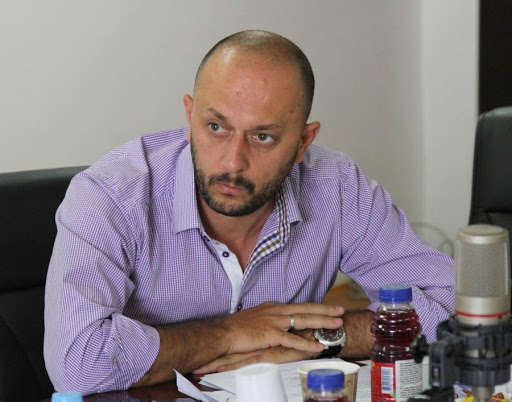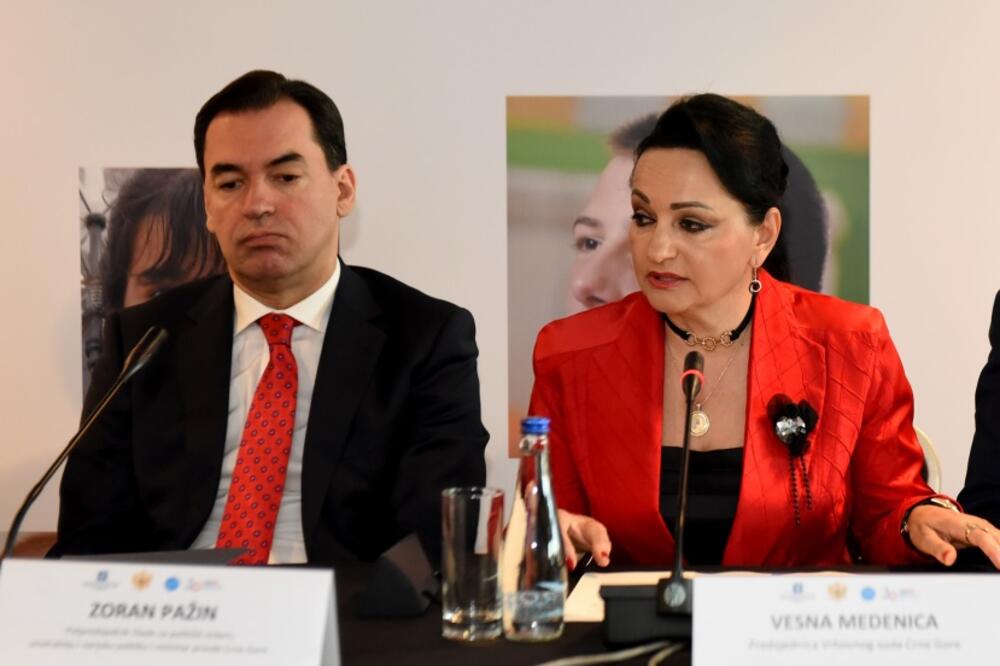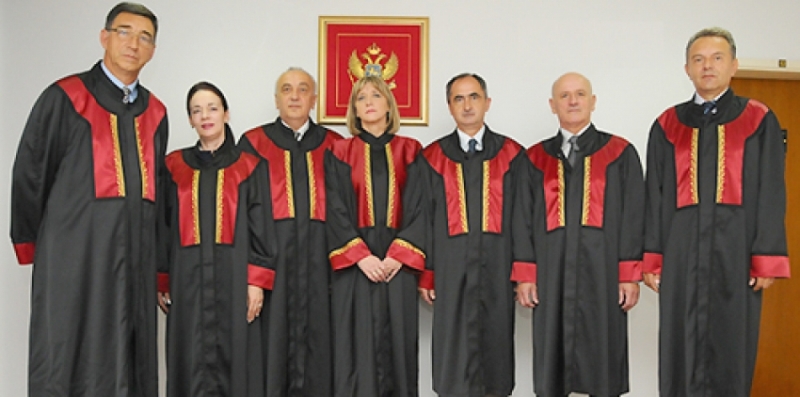
A JUDGEMENT FOR BETTER TIMES: JUDGE SANJA NIKIĆ ANNULS PARLIAMENT OF MONTENEGRO DECISION IN DISPUTE OVER THE DISMISSAL OF RTCG COUNCIL MEMBER NIKOLA VUKČEVIĆ
07/10/2020
JUDICIAL COUNCIL IS NOT AUTHORIZED TO EXTEND THE DURATION OF THE JUDICIAL DUTY
12/10/2020ANOTHER PROTEST OF NGOs DUE TO THE COUP IN THE CONSTITUTIONAL COURT: STATE PROSECUTORS’ OFFICE TO REACT

Ustavni sud
Non-governmental organizations Human Rights Action (HRA), Center for Civil Liberties (CEGAS), European Association for Law and Finance (EALF), Institute Alternative (IA), Institute for the Rule of Law (IVP) and the Network for Affirmation of the NGO Sector (MANS) protested because the Constitutional Court of Montenegro had not initiated the procedure of electing its president in accordance with the law for more than eight months.
On February 5, 2020, six NGOs sent an open letter of protest to the Constitutional Court because the majority of judges of that court, four of them, contrary to the Constitution of Montenegro and the Law on the Constitutional Court, established the function of a “presiding judge” and elected judge Desanka Lopicic to that function. She had previously held the office of the court president and the Montenegrin Constitution explicitly prohibited the same person from holding the office twice. The NGOs have previously called for the disputed decision on the election of the presiding judge to be revoked, and the oldest judge, Hamdija Sarkinovic, to call a session at which the president of the court would be elected in accordance with the Constitution, the Law and the Rules of Procedure of the Constitutional Court. In particular, we have drawn attention to GRECO’s recommendations to Montenegro to limit the excessive concentration of power in the judiciary, embodied in the third term of the President of the Supreme Court and six presidents of other courts, something also the European Commission had criticized.
The Constitutional Court never responded to the open letter, and now the very same majority, consisting of the “presiding judge” Desanka Lopicic, Hamdija Sarkinovic, Dragoljub Draskovic and Mevlida Muratovic, rejected the proposal of a minority of judges, Budimir Scepanovic, Miodrag Ilickovic and Milorad Gogic, to even put on the agenda of the Court the issue of scheduling the election of the President of the Constitutional Court. The majority which arbitrarily elected judge Lopicic on the so-called “presiding” function at the same time also arbitrarily prescribed that “the conduct of the presidential election will be organized by the end of December 2020 at the latest”, although there had been no reason not to repeat the election process immediately.
By rejecting to organize a new round of elections for the president of the Constitutional Court, the majority of that court defies not only the regulations in force in Montenegro (see the open letter for detailed arguments), but also the position of the European Commission, which announced in its recently published report on Montenegro that “the presiding judge was elected despite the fact that such a category is not known by the legal framework”, and concluded that “the procedure for electing a new President of the Constitutional Court should be carried out without further delay “.
In this legal situation, we can only appeal to the state prosecutors’ office to provide a reasoned assessment on whether the actions of four judges of the Constitutional Court correspond to acts of a criminal offense prosecuted ex officio.







 English
English